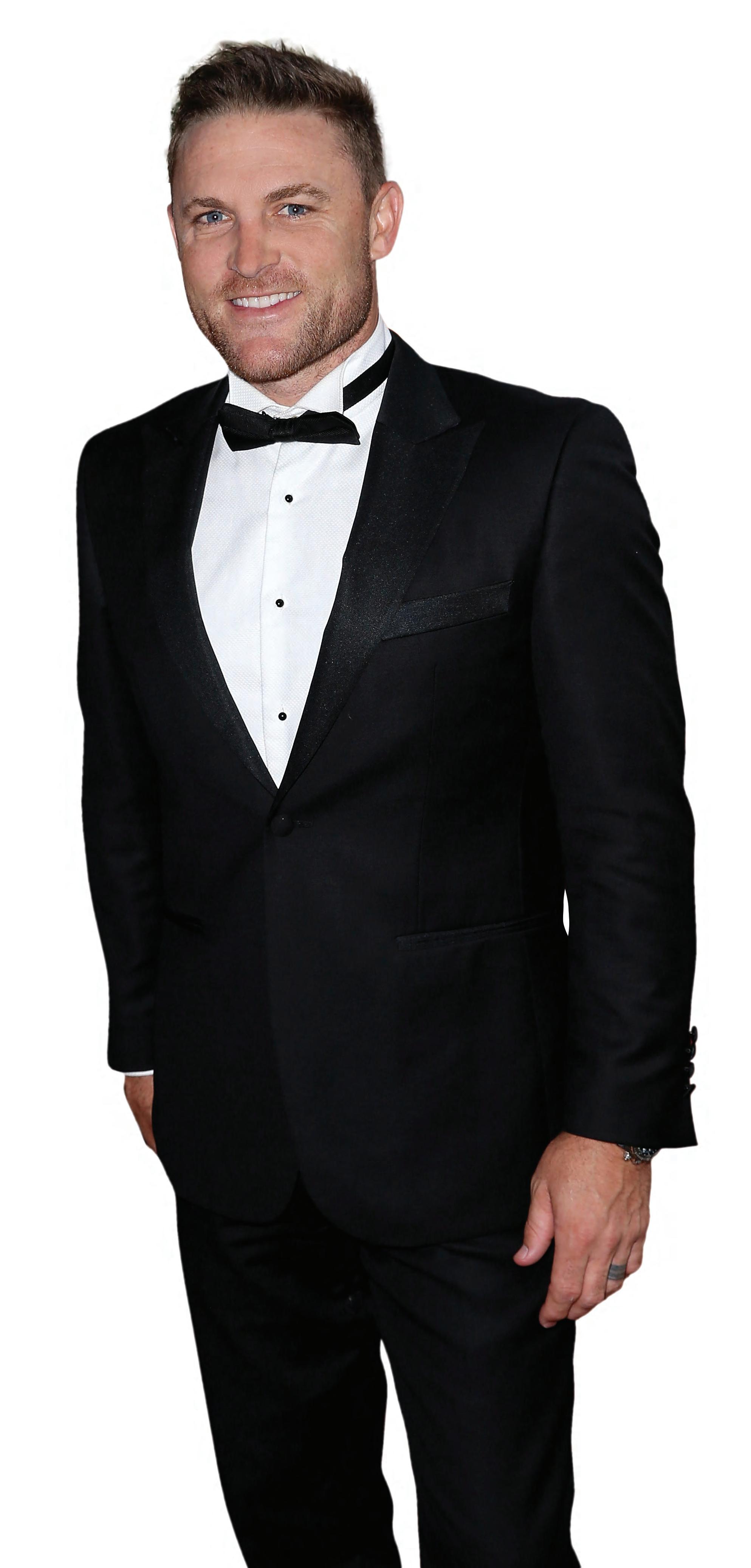

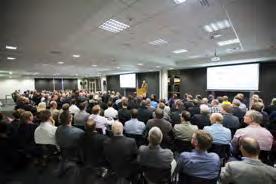



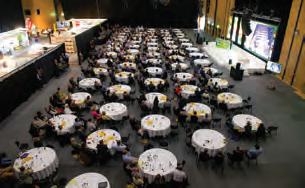
















A new Waikato University research project has added to the portfolio of ventures within the Sulphur Point marine precinct at Tauranga, with some cutting-edge work exploring the commercial options for one of the country’s most common seaweeds.
TBy RICHARD RENNIE
he university’s researchers have recently celebrated the commissioning of a 1000sqm seaweed research facility opposite the university’s coastal marine research base on Cross Road.
The University of Waikato’s coastal marine field station at Tauranga is the centrepiece for the university’s new aquaculture major, offered at the university’s Tauranga campus.
The scientists have been working on sea lettuce (ulva), the annoying seasonal green seaweed that can often clog the Main Beach and harbour reaches, piling up in stinky green layers in the summer heat.
The work has been focusing upon producing soluble fibres with bioactive properties for stock feed additives and nutraceuticals for human health benefits. Another by-product of these processes is cellulose, suitable for use in medical materials.
Funded with $4 million from the Tertiary Education Commission and $9 million from the university, the facility includes 12 4000 litre fully recirculated growing ponds and 12 1000 litre ponds, split between freshwater and salt water.
Lead researcher Dr Marie Mag-




nusson says the facility provides her and her colleagues with the opportunity to explore an array of seaweed and algae through their growth stages, studying multiple uses for the plants.
[We are] confident the Waikato University researchers will move from the big tank trials to sea trials within a year.”
–
Dr Marie Magnusson
The freshwater ponds mean algae can be reared. Researchers will study their role in bio-remediation, the biological clean-up of waste-water and polluted waterways, including dairy farm effluent and urban wastewater.
Such algae also have a high protein content, making them suitable as a feed additive for animals.
“Closed loop” aquaculture sys-
tems are also due to be studied, with sea lettuce requiring carbon dioxide to grow, while fish breath carbon dioxide out, meaning the two may be able to be farmed in balance.
Given sea lettuce only takes two to three weeks to grow to harvestable size, it is an appealing crop from a commercial perspective.
Dr Magnusson is confident the Waikato University researchers will move from the big tank trials to sea trials within a year.
In its simplest form, the sea lettuce could be grown out as a feed source for some fish species, and commercial paua.
National standard for aquaculture
Late last year a national environmental standard for aquaculture was formalised, providing the sector with a clear pathway to scaling up operations.
This was backed by multi million dollar Provincial Growth Fund investments, including $20 million into an expanded mussel operation at Opotiki.
Commercial trials of paua farming and open ocean fin fish farms are also proposed in coming years.
The government’s aquaculture
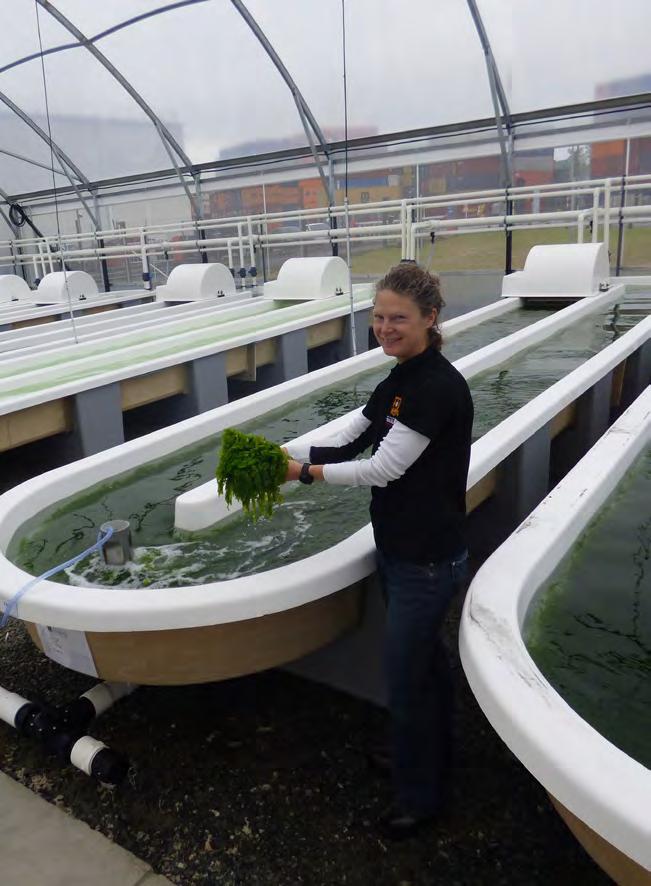
strategy released in 2019 aims to turn the $800 million a year aquaculture industry into a $3 billion one by 2035.
Other proposed uses for seaweed researchers indicate they are keen to investigate include earlier work in Australia that has shown some positive health benefits in rats from seaweed consumption.









“There is also the potential there as a general gut health additive. Due to the level of soluble fibre it contains it has positive effects on the gut biome.”
Sea lettuce has also shown to enhance plants’ immunity against pests and diseases, offering the potential as a non-synthetic treatment.
www.bopbusinessnews.co.nz
PUBLISHER
Alan Neben
Ph: (07) 838 1333 Mob: 021 733 536
Email: alan@bopbusinessnews.co.nz
EDITOR
David Porter
Mob: 021 884 858
Email: david@bopbusinessnews.co.nz
PRODUCTION
Copy/Proofs/Graphic Design
Times Media – Clare McGillivray
Ph: (09) 271 8067
Email: clare@times.co.nz
BUSINESS DIRECTOR
Pete Wales
Mob: 022 495 9248
Email: pete@bopbusinessnews.co.nz
EDITORIAL:
News releases/Photos/Letters: david@bopbusinessnews.co.nz
GENERAL INQUIRIES: info@bopbusinessnews.co.nz
Bay of Plenty Business News has a circulation of 8000, distributed throughout Bay of Plenty between Waihi and Opotiki including Rotorua and Taupo, and to a subscription base. www.bopbusinessnews.co.nz
Bay of Plenty Business Publications 309/424 Maunganui Road, Mount Maunganui, 3116
Bay of Plenty Business Publications specialises in business publishing, advertising, design and print media services.
We are delighted to feature additional comment in this issue on the subject of the special commissioners newly appointed by central government to replace the former Tauranga City Council.
At the moment, the commissioners are wrestling with coming up with a Long Term Plan, which will almost inevitably see rates rise in the city.
It remains to be seen how this will be greeted by the population. But it seems to have been welcomed by a large percentage of the business community, who feel Tauranga has failed to deliver on its promise as one of the country’s largest-growing cities.
And who have welcomed the commissioners stated transparency in dealing with the task ahead of them. However, there is some skepticism in the community that the commissioners will complete their mandate in time for the next election cycle as they have been proclaiming.
Meanwhile, one of the most staggering changes seen in New Zealand has been unveiled by the Labour Government with its recent decision to totally revamp the old system of District Health Boards.
Minister of Health Andrew Little recently announced the sweeping changes, stating that the 20 district health boards will be replaced by a single national agency called Health New Zealand.
In addition, a Māori Health Authority will be established, and the government is promising better access to care no matter where you live.
The shakeup, which went beyond the Government’s
original recommendations, represents a fundamental change to the way New Zealanders receive health care.
Opinions are mixed as to how well all this will work out in practice. Former West Coast DHB chairperson Dr Gregor Coster told Morning Report he didn’t have any concerns about the changes, noting only his concerns that we need to see the funding for healthcare addressed.
Report there were some risks in the plans.
“If we go down the track of having a Māori Health Authority that is established in the same western model as for example the new national health organisation, then it’s kind of doomed to fail to start with, because we need Māori processes.”
Bowel Cancer NZ patient advocate Sarah Derrett said it was critical the rollout of the
We need to see the shortage of doctors, nurses, midwives, health psychologists, mental health workers and other critical workers addressed and above all we need to improve access to healthcare for Ma ori, Pacific and others with health disparities.”
– Dr Gregor Coster
“We need to see the shortage of doctors, nurses, midwives, health psychologists, mental health workers and other critical workers addressed and above all we need to improve access to healthcare for Māori, Pacific and others with health disparities,” he said.
However, he did not feel the so-called “postcode lottery” would end, though he felt there could be an improvement in the way people get to access services.
Māori health researcher at the University of Auckland, Dr Jacquie Kidd, told Morning
The have recognised what the issues are very well.”
– Nigel Tutt
bowel screening programme went ahead despite the restructure. There were four DHB regions that needed to enter the screening programme by the end of this year, and that programme needed to stay on track, she said.
Association of Salaried Medical Specialists (ASMS) former executive director Ian Powell told Morning Report patients were likely to be big losers in newly announced health reforms.
“The first thing that stands out to me is there is a lack of empirical evidence to actually

Business operators optimistic on commissioners’ appointment – p6
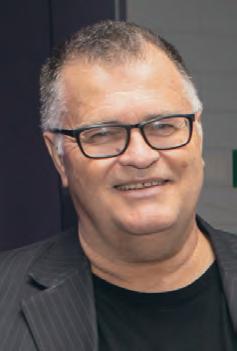
justify the decision to abolish [DHBs]. The argument about postcodes, for example, or access to ... health services on the basis on where you live – this is not going to change that,” Powell said.
The change would not strip away bureaucracy but reposition it, he said.
Canterbury DHB former acting chairperson Tā Mark Solomon told Morning Report the news of the reform was “like an atomic bomb being dropped with no warning”.
It was true there were issues with the delivery of health services to isolated regions, he said: “But extending the size of each of the health areas won’t reduce that, it’ll increase it. Because you are having bigger areas coming together”.
The Ministry of Health had been the “biggest impediment to health delivery in this country, because of the way they have acted”, he claimed.
Predictably, the opposition National Party has called the reform reckless, saying small communities will be stripped of their voice, and health spokesperson, Shane Reti, claiming the proposed new regime will likely end up another sprawling bureaucracy.
Party leader Judith Collins has already announced that National would reverse the restructuring.
Anne Tolley says the commissioners were acutely aware of the tight 18-month time frame.”
Commissioners front up to Tauranga challenge – p6


The most significant market move over the last quarter was the jump in longer-term interest rates. Bond prices move in the opposite direction to interest rates (or bond yields) – when yields rise, bond prices fall (and vice versa).
For years (or really decades) bondholders have benefited from falling interest rates, and therefore rising bond prices. Over the last six months the direction has reversed, with higher longterm bond yields resulting in some of the biggest bond price declines for many years. Shorter-term rates didn’t rise as much, but most bond portfolios would have lost value over the last six months.
For investors who plan to own bonds to maturity, these
“losses” on bonds aren’t permanent – holders will still receive the same interest on their investment and be repaid in full when the bond matures (unless, of course, the borrower defaults, generally not a common event).
Higher interest rates reflect the improved outlook
Covid-19 vaccine rollouts are progressing around the world. Israel continues to lead the
way with 61% of the population having received at least one dose of a vaccine as at early April.
The United Kingdom at 46% and United States at 32% remain the leaders of the major economies. The early evidence is positive, suggesting that vaccines are at least as effective as the clinical trials concluded and likely help prevent transmission of the virus.
Additionally, policymakers (governments and central banks) whose actions have

> BY BRETT BELL-BOOTH
Investment Adviser with Forsyth Barr Limited in Tauranga, and an Authorised Financial Adviser. Phone (07) 577 5725 or email brett.bell-booth@forsythbarr.co.nz.
underpinned economies over the past year, remain committed to providing substantial support.
The rise in bond yields reflects confidence that the combination of vaccines and huge policymaker action will (1) drive a strong recovery in the global economy, and (2) potentially help lift inflation (the aim of central banks). Higher inflation lowers the value of money over time – investors, therefore, demand higher interest rates to compensate.
Inflation remains a key uncertainty for markets. We expect a jump in coming months as prices recover from
the falls seen during last year’s lockdowns, but we believe it is too early to know if this will be temporary or sustained.
Over the past decade more and more central banks have struggled to boost inflation, despite very low interest rates – technology, high debt levels, globalisation, and an ageing population have all kept a cap on demand and pricing power. These pressures will remain in the years ahead.
Equities have continued to perform well
Despite interest rates rising, it has still paid to be invested in equities. Global equity
The future of electric vehicle rapid-charging has already become reality at Farmer Autovillage with the installation of the very first 175kW DC fast charger in the Bay of Plenty.
Installed with co-funding from the Low Emission Vehicles Contestable Fund (LEVCF), which is administered by EECA (Energy Efficiency & Conservation Authority), the high-tech charge station at Farmer Autovillage will be available for 24/7 public use starting from April 15.
The EV charger is located outside of the Farmer Nissan showroom with vehicle access from the corner of Maru Street and Hewletts Road, Mt Maunganui.
“We wanted to take a leadership position on EV infrastructure in our city and surrounding areas and this is the first step,” said Mike Farmer, Group Managing Director. “Over the coming years we will see a significant lift in affordable electric vehicles across all segments from all of the brands we currently represent,” he said.
The new charging station is compatible with the CCS and CHAdeMO platforms. The capability to charge at up to 175kW can provide substantially faster charging times than the small number of 50kW public EV chargers presently available in the Tauranga and Mt Maunganui area.
EECA Transport Portfolio Manager Richard Briggs said,
“We’re pleased to see a member of the motor vehicle industry taking this positive step. This project not only expands the charging options in the Bay of Plenty, it also demonstrates to people in the market for a new car that electric and hybrid vehicles are a great choice. Knowledgeable, engaged dealers will really make a difference to drive uptake.”
The new charger will be available 24/7 for all electric vehicle

owners and is easily activated via the “Open Loop’’ app. For the first three months of operation rapid-charging is being offered freeof-charge, after which time electricity will be priced at 60 cents per kWh (kilowatt hour).
During normal business hours the short wait required for vehicles to be fast-charged can be spent inside the award-winning destination dealership at Farmer Autovillage, where a cafe and business lounge is available along with a wide selection new and used vehicles.
The fast-charger installation supports a rapidly-expanding
choice of full electric and hybrid vehicles available from several of the Farmer Autovillage brands.
The EV entry point is MG’s first electric SUV, the MG ZS EV – which has just won the AutoCar Electric Vehicle of the Year award – starting from only $49,990 plus on road costs.
The Nissan range includes the new generation LEAF while Audi boasts an expanding line-up of premium EVs including the flagship Audi e-tron in SUV and Sportback body styles while pre-orders are already being taken for the new e-tron GT model ahead of its arrival later in 2021.
markets surged into the end of 2020, paused for breath in January, but kicked on again in February and March. Reporting season, when companies report their results to the market, generally saw profits stronger than anticipated. Companies are benefiting from a combination of improving economic activity and significant cost savings.
This column is general in nature and does not take any of your personal circumstances into account. For personalised financial advice, contact Forsyth Barr for an overview of the services we can provide.
Wednesday, 26 May 7.45-10.30 am University of Waikato Tauranga Campus, 101 Durham St, Tauranga
Rhubarb and Priority One have invited you to a Mental Health and Wellbeing Symposium.
A year on from Covid the working landscape has changed considerably. Whilst there have been on-off lockdowns in various parts of NZ, there has been a greater adoption of digital technology in the workplace. More businesses are enabling working at home which brings a number of challenges along the way, particularly team management, worker connections, personal wellbeing and company culture.
Join Rhubarb and Priority One for an exciting session where our guest speakers will discuss their experiences and share knowledge in the field of mental health and wellbeing. Plus a great opportunity to network with your peers. The guest speakers are Nigel Latta, Mike Sheridan, Lee Timutimu and Melanie Bedggood.
Limited tickets available, secure yours now with Priority One.

By RICHARD RENNIE
Lead commissioner Anne Tolley says the city’s “arteries are clogged”, and the commissioners intend to instil true governance to the city.
She and three fellow commissioners have outlined the plans they have over what they say at this stage will be a short 18-month tenure (ie, until the next scheduled election to replace the ousted Tauranga City Council) to jumpstart neglected capital works and development plans for the city.
Her declaration that she and fellow commissioners will never be seen disagreeing in public over decisions was welcome news to the Tauranga business community, frustrated by dealing with the publicly fractious councils of the past.
Considering the region as a whole
Tolley and fellow commissioners have vowed to lift the eyes of the city to consider the Western Bay region as a whole in any decision making, rather than the city in isolation.
Stephen Selwood, commissioner, and infrastructure expert, acknowledged the city has difficult challenges ahead in catching up on neglected development, which included both community and infrastructural projects. He was speaking at a recent session at Trinity Wharf Hotel to introduce the commissioners to the business community.
“The reality is if we do not invest in our city, we fail our businesses, we fail our families and we fail our communities. Because the city is the platform upon which we can enjoy life, we pay in other ways if we don’t invest.”
He pointed specifically to community facilities, roading and public transport as key areas needing immediate attention. “It is time for a reset and a refresh.”
Tauranga Chamber of Commerce
Trying to ensure New Zealand’s fastest-growing city starts to act like it after years of neglected investment is a basic but pointed objective for Tauranga’s city commissioners.
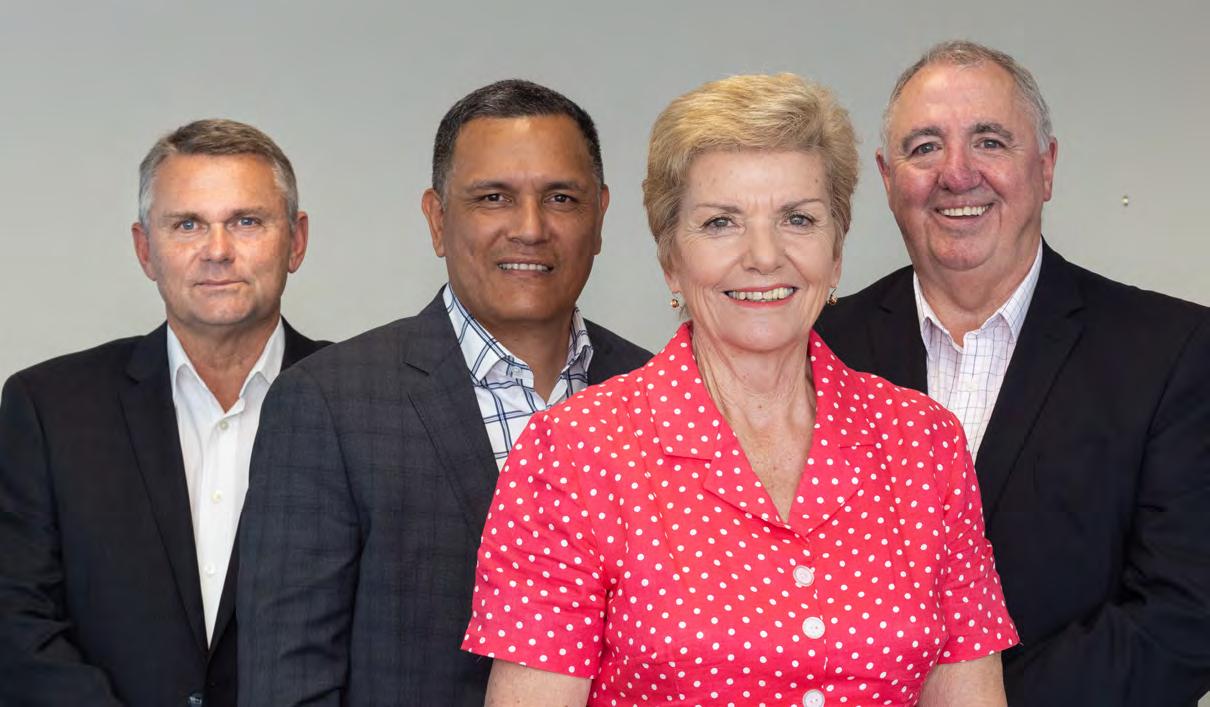
NewTauranga City Council Commissioners BillWasley, Shad Rolleston,AnneTolley (Chair) and Stephen Selwood.
CEO Matt Cowley said business leaders were impressed with the level of honesty of commissioners’ responses to the concerns raised by the business community.
Still some major frustrations to unpick
“There are some genuine governance skills there that boost the confidence of businesses. There are, however, some major frustrations there that will not be able to be unpicked in only 18 months.
Businesses have found it easier to work with other councils that have a ‘can do’ attitude, compared to Tauranga, which has been risk averse.
The commissioners took that on board.”
The commissioners’ first job has been to compile a long-term plan for the city’s development, with no small measure of catching up contained within its 10-year window.
Tolley told business leaders that in 30 years of politics she did not think she had ever seen a community so poorly served as Tauranga. “There is some catchup built into this plan. We have to ensure the community buys into this plan before we go.”
Easing the housing shortage
Key components of the long-term plan include easing Tauranga’s housing
shortage, and providing for more than 9000 jobs between the city centre and Tauriko.
Improving transport and community facilities – including parks, pools and libraries – are also prioritised.
Revitalising the moribund city centre and encouraging private investment there is also a priority. The plan is open to community consultation through May, and aims to be adopted by late July.
Tolley says the city’s executive has acknowledged it lacked the capacity and knowledge to make the major capital upgrades that need to be made, and the commissioners were acutely aware of the tight 18-month time frame they had to operate under.
She urged Tauranga business people to think hard about the type of council they wanted to have in place, on their departure.
Cowley said the city is entering the most significant capital investment period it has ever witnessed.
Key projects on the priority list include a $45 million revamp of Cameron Road, $20 million invested into water treatment, and several million into building greater climate change resilience into existing infrastructure.
“Most businesspeople are looking at this as an investment, and that starts with confidence in the board, this showed there is confidence, but a lot of work is still to happen.”
Tauranga businesses are welcoming the professionalism and impetus the appointment of commissioners to the city are bringing after years of inertia.
By RICHARD RENNIE
Priority
One chief executive
Nigel Tutt told Bay of Plenty Business News the ability of the commissioners to act without the influence of an electoral cycle should not be underestimated, coming after more than a decade of “low rates” electioneering that has crippled many aspects of the city’s development.
“Their brief is very clear,” said Tutt.
“They have formed a long-term plan and are aiming to get the financial side sorted. There are three clear areas to work on- transport, housing and the CBD. They have recognised what the issues are very well and have got moving on decisions that have been lingering for years.”
In a March meeting with Tauranga businesses, commissioner Anne
Tolley described Tauranga’s arteries as “clogged”. She also said in 30 years of politics she did not think she had ever seen a community so poorly served by its council as Tauranga.
Housing shortage bottleneck
Nigel Tutt says the business community regard housing as an utmost priority, given the bottleneck its shortage creates for businesses wanting to draw new staff to the region.
“They simply do not have anywhere those staff can be housed.”
Utilising the central government’s housing acceleration fund and having the government on board to provide transport infrastructure means zoned areas in Papamoa East and Tauriko West can now get moving on development.
He is also confident there will be

significant strides over the coming seven to eight years on CBD re-development, thanks to the commissioners undertaking to ensure the city council will underwrite activity happening there.
“Plans are afoot, and redevelopment there is not rocket science. It is about telling the right story to inves-
tors, assuring them this is a zone that is on the way up, and helping take some of the risk out of that investment, which has not been the case before.”
He said it was hard to know if the commissioners will be staying beyond the initial 18-month period they were employed for.
“But most people I talk to in business would be in favour of seeing that extended. Eighteen-20 months is a very short space of time to make these changes.”
A decade too late?
He agreed that in some respects the appointment of commissioners was a decade too late.
“A lot of the hard work to be done now is because the hard decisions have not been made earlier. That 2-3% increase on rates every year not put through does not go away, it just banks up while the stuff they need to be spent on just gets more expensive.”
On January 14, Tauranga City Council’s credit rating was lowered by S&P Global Ratings, with con-
cerns raised over its political and governance issues.
S&P raised concerns over Tauranga’s lower than previously budgeted rate increases leading to very large deficits and rising debt levels.
The report’s authors cited concerns over Tauranga’s capital account deficits over coming years averaging 25% of total revenue per year, weaker than most domestic peers.
Tauranga was however expected to benefit from the $15 million in Three Waters reform, $45 million from the Te Papa “shovel ready” project and $24 million from the sale of elder housing.
Tutt says past councils pushed to keep rates down, but were not clear enough to constituents about what would be forgone as a result.
Expectations are Tauranga ratepayers will face at least a 20% rates increase to try and claw back income and improve the city’s ability to lift borrowings and remain within lending parameters.
“I have not run into any businesses who do not believe a rates increase is necessary.”
Tauranga City Council’s fourperson Commission has wasted no time in getting the organisation’s governance functions back on-track.
LBY ROSS BOREHAM
ed by former Cabinet Min-
ister Anne Tolley, the commission’s remaining members are Bill Wasley (the former independent chair of the Western Bay SmartGrowth partnerhip); Stephen Selwood (the founding chief executive of Infrastructure NZ); and Shadrach Rolleston (a consultant planner with strong iwi affiliations).
Their combined strengths and experience in governance, planning, strategy and policy development and infrastructure planning add considerable weight to the Council’s decision-making capacity – a critical factor which has been welcomed by the Council’s executive team.
Three months into their 20-month tenure (the commission has been tasked facilitating a transition back to democratic leadership for the 2022 local government elections) the Commissioners have gone through an intensive series of briefings on the council’s business; guided the completion of the draft 2021-31 long-term plan (which is now going through formal community consultation) and made a raft of key decisions along the way.
They’ve also maintained a hectic community engagement schedule, meeting with a wide range of organisations and individuals to expand their awareness of local issues and priorities.
Chair Anne Tolley says they have had a steep learning curve, but are relishing the challenges of their role and enjoying hearing the community’s views.
“It’s fair to say there is wide

most urgent needs,” says Tolley.
Amemorandum of understanding has been signed between the Ministry of Business, Innovation & Employment (MBIE) and Tauranga-based Envico Technologies, in preparation for a trial which will field test the use of predator-control drones for conservation.
MBIE General Manager of Science, Innovation and International, Dr Peter Crabtree, says Envico is the third industry partner to join the Government’s Airspace Integration Trials Programme, which supports world-leading aerospace companies to carry out the development, testing and market validation of advanced drones in New Zealand.
“One of the Programme’s goals is to accelerate the integration of drones into New Zealand airspace, in order to unlock the economic and social benefits on offer. Industry partners like Envico will also help to inform policy and regulatory development by sharing data and learnings obtained from the testing of their innovative platforms.
We need your help to make some very important decisions for Tauranga, so please take the time to read the long-term plan consultation document (available online) and make a submission.” – Anne Tolley
recognition that investment in community facilities and infrastructure has not kept pace with the needs of a growing city. That means we have to play catch-up and start working on the facilities which will make Tauranga a great place to live, work, learn and play,” she says.
“That covers everything from community centres to cultural facilities (including a new central library) and swimming pools. At the same time, we have to upgrade our infrastructure – roads and water, wastewater and stormwater systems – to keep up with our current needs and put in the new infrastructure required to manage
future growth.”
Of course, all of those investments have to be paid for, which is where “the going gets tough”.
Past decisions to minimise rates increases and use debt-funding as much as possible mean the council is close to its debt-to-revenue limit, with little headroom to take on extra borrowing.
The draft 2021-31 Longterm Plan therefore has a strong focus on revenue and debt repayment, to ensure that the city can afford capital expenditure totalling around $4.5 billion over the next decade.
“None of that is frivolous spending and it prioritises our
“We want the widest possible feedback on the draft plan – on the work programme it sets out and on the way we propose to pay for it.
“Unfortunately, rates increases are unavoidable, and we are asking the business sector to pay a fairer share of the costs through an increased commercial differential rate, bringing them more into line with other centres.
“We’re also working with regional and central government to access infrastructure funding and developers will be asked to play their part through higher development contributions.
“If we want to live in a city we can be proud of, it’s time to stop passing the buck.
“We need your help to make some very important decisions for Tauranga, so please take the time to read the long-term plan consultation document (available online) and make a submission.”
• Ross Boreham is Communications and Engagement Consultant at Tauranga City Council
“The partnership with Envico adds to the work being undertaken by other industry partners in the Airspace Integration Trials Programme in the areas of passenger transport and high-altitude imaging, demonstrating the depth and breadth of New Zealand’s growing drone sector,” says Peter Crabtree.
Envico have a strong track record in predator control using drones, including the eradication of rodents on two islands in the Galapagos in 2019. In 2020, they were the recipients of a Department of Conservation grant, enabling them to begin a series of field trials using drones for dispersal of non-toxic cereal baits.
In order to scale up operations for these trials, Envico is developing a new, larger aerial baiting drone, converting a small helicopter to enable remotely piloted operations.
“We’re excited for the opportunities that come with being part of the Airspace Integration Trials Programme as we continue our development, says Envico Co-Founder Cameron Baker.
“This partnership will enable us to work closely with other industry partners in the programme, sharing our experiences and insights to further advance the aerospace industry in New Zealand.”
“I’m eager to see Envico’s progress as they continue development of their predator control drones in New Zealand, especially with a project that will help protect Aotearoa’s flora and fauna from invasive species,” says Peter Crabtree.
If
you can’t see the Redwood for the trees, our new partner can.
Congratulations to Holland Beckett Law’s newest partner, James McDougall, who leads the Rotorua office.
If you’ve gone off-track, legally speaking, you’ll need an invested local who knows their way round the trails to get you out. James is just the man. He is an experienced litigator in Court and tribunals and advises clients on a broad range of contentious issues. He’s also a trustee of the Rotorua Bike Festival.
Congratulations on your promotion, James. We look forward to seeing you in Whakarewarewa Forest very soon.
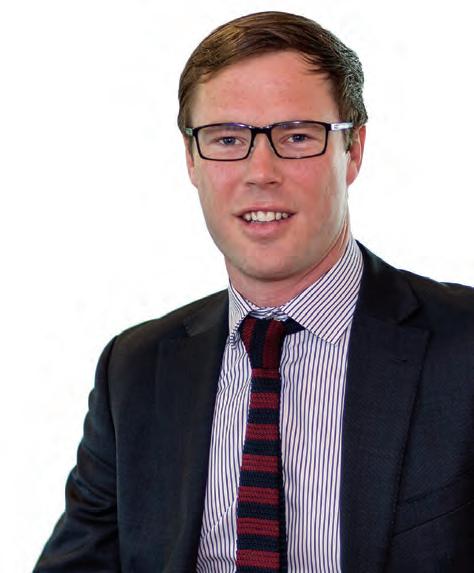
Here are some of the local winners of Te Kahui Whaihanga New Zealand Institute of Architects 2021 Waikato and Bay of Plenty Architectre awards. The awards ceremony was held at the University of Waikato’s Tauranga campus.
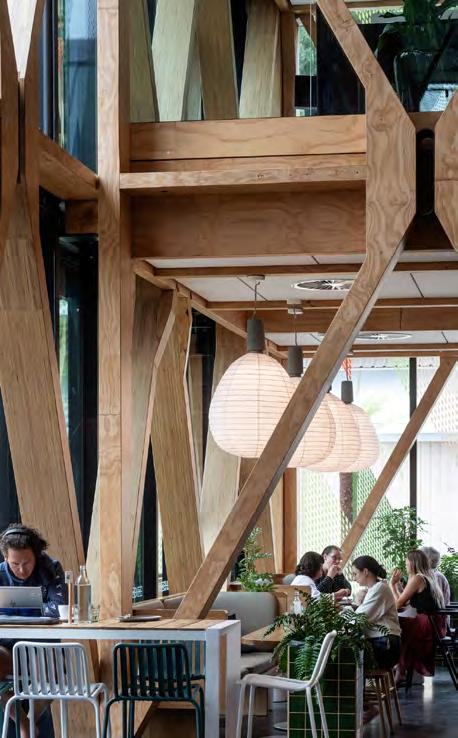







There was a time when computer geeks were actually geeks, and computers were sci-fi imaginings, before they became the things that sat on the desk near the server room.
The word geek (derived from the word Greek without the ’r’) was then used as an insult, but now it’s pretty much a neutral term, if not a compliment: If you’re a geek now, you’re a little odd, really smart and on the verge of being very rich (if you so choose).
“Becoming a tech geek isn’t such a bad career path,” I tell my kids.
But tech isn’t just a “computer thing”. It has infected all our lives.
To illustrate the impact of tech on our lives, let’s compare
a day in the life of ‘me’ with a day in the life of ‘my dad’ –should be fairly similar (loathe though I am to admit it).
Dad would wake at 5.30am, when the hideous bell on his alarm clock woke the entire house. He would turn on the transistor for the morning news, make his lunch and head off to work – always took a while to get the car started in the winter, which usually woke us all a second time.
That’s the last we’d hear of dad until he arrived back home that night. He’d eat dinner, watch the news on telly, and
head off to bed after reading the paper.
He always had cash in his wallet, though he seemed to have extreme difficulty opening the wallet to remove any of its contents.
Although we had a car, whenever I asked, “Can you pick me up?”, he would reply, “You’ll have to walk.”
Fast forward
Fast forward 40 years … I’m woken at 7am by the alarm on my phone. I quickly check my notifications and emails then

> BY ALAN NEBEN
Alan Neben is a Mount Maunganui local and experienced New Zealand publisher. He now regularly works from home. alan@bopbusinessnews.co.nz
my online calendar and sendoff a couple of quick replies.
Yup FB has reminded me, it’s mum’s birthday today –DAMN! Fortunately my phone has also miraculously provided me the perfect gift suggestion – quelle surprise.
Heater’s already on so the house is warm as toast. Thank goodness I set the temperature in advance from my phone last night when I received a notification from my weather app that today was going to be a nippy… note any temperature near 10 degrees C is considered nippy in the Bay.
I’ve got to get the kids up, fed and dropped off to school –I’m working from home today.
My Dad doesn’t really get the whole ‘working from home’ thing – in his world it’s not really working, is it?
We’re out of Weetbix, but our groceries should be delivered this morning – stress – did I order Weetbix? I better check that. I’ll put it on my to do list.
And so my day’s set: I’ll Facetime my wife in her lunch break, the kids are going to text me when they’re ready for pick-up after school – they may need to Uber if I’m not off my 3pm Zoom. I’ve transferred some cash to their cards so they can buy lunch. Has tech made life better? I reckon it has, maybe, but I’m not sure dad agrees. According to a recent tweet I saw, 85% of Boomers don’t value 67 percent of tech advances to the same extent as Millennials (that’s going on Reddit r/OldiesDontGetTech). As far as dad’s concerned, we are talking a different language. Pffffft, what would he know? Tech has made life sooooo much easier.
Sharp Tudhope is delighted to announce the appointment of James Dow to our commercial team as special counsel. James will join the firm’s partnership once he has fulfilled the NZ Law Society’s regulatory requirements.
James’ career to date has been at top tier law firms in Auckland and several years at a global law firm in London. James has advised on several of New Zealand’s leading transactions in recent years and he is bringing a wealth of experience to the region. He says, “The Bay of Plenty is home to many thriving industries and continues to experience huge growth. I’m very excited about joining the great business community here and thrilled to have joined Sharp Tudhope with its long and illustrious reputation in the Bay of Plenty.”
Partner Richard Hoare says, “We are always looking to the future and we are delighted that James has chosen to join Sharp Tudhope. We consider him a great fit to further strengthen our team and service our clients.”
At Sharp Tudhope we are proud to be both celebrating our 125th anniversary and maintaining our focus on upholding legal excellence with strategic appointments that ensure we continue to strengthen our relationships. It’s about recruiting the right people with the right expertise and James Dow’s appointment will add immeasurably to that.
Get the best advice from the most experienced team of commercial lawyers in the Bay. Talk to James today on 07 928 0788 or jamesd@st.co.nz.
www.sharptudhope.co.nz
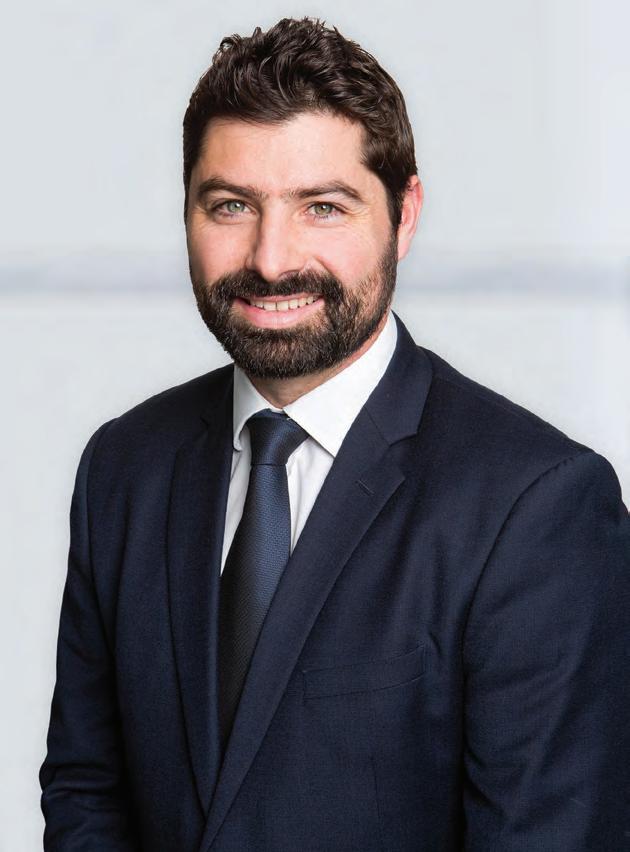

Splice Construction Magic Netball – ANZ Premiership
The Splice Construction Magic Netball team will be playing 3 of The ANZ Premiership games in Tauranga this year: 2 May vs Robinhood Stars @ 6.15pm, 17 May vs Robinhood Stars @ 8.15pm and 24 May vs Northern Mystics @ 8.15pm.
The Waikato Bay of Plenty Magic are a New Zealand netball team based in Waikato. The Magic won the 2012 ANZ Championship becoming the first New Zealand and only team to win the competition. Make sure you get along to support the MAGIC at one of these games. as we head into the business end of the season. (www.tiketek.co.nz)
Tauranga Home Show
The annual Tauranga Home Show returns in 2021 for its huge 22nd show. Spread across both auditoriums of Baypark as well as outdoor and marquee displays, draw inspiration from over 300 exhibitors bringing you everything you need to build your dream.
Browse and compare, take advantage of exclusive show deals and giveways, enjoy the demonstrations in the BespOak Live Cooking Theatre, sit down to eat at the Landing Food Truck Hub, give the kids a treat with the free balloon twisting and bouncy castle, and enjoy a great day out for the whole family.
Visit the show on the 7th, 8th and 9th May 2021.
Stormwater 2021 National Conference
Come and join us for our 20th anniversary on 12 – 14 May. Once again we have a great line up of speakers and events.
Keynote speakers will include co-founder of the US-based Coastwise Partners, Holly Greening. After a successful career as executive director and senior scientist of the Tampa Bay Estuary Programme, Holly, along
It may be winter, but there is no excuse to hibernate. Head on down to Baypark where there is plenty to keep you and the family entertained.
with colleague, Rich Batiuk set up the Coastwise Partners, to help other coastal environment organisations around the world to succeed. Many of you will remember Rich Batiuk from our conference two years ago.
The 2021 Stormwater Conference is also one you won’t want to miss.
BOP Wedding Show
Come along to The Bay of Plenty Wedding Show on 30 May and get inspired. You’ll see loads of gorgeous ideas and on-trend inspiration to your wedding planning that much easier and get your creative juices flowing.
You’ll meet amazing wedding vendors who can help you plan the most amazing day of your life, so take the time to browse and speak to them, as they have a wealth of experience on offer. Soak up the atmosphere, take a break at the cafe, then check out the amazing wedding gowns, bridesmaid gowns and menswear coming down the runway at 2.00pm.
Come along and experience the fun, excitement and glamour as all the top wedding specialists in the region gather at the TrustPower Arena, Mt Maunganui.
Project 2021
PROJECT is a Hip Hop Crew Dance Competition for youth who have a passion for Hip Hop Dance.
This event will allow young people to engage in creative expression in a supportive and positive environment that encourages participation and enjoyment. Participants may come from throughout New Zealand.
On Saturday 5th June our entrylevel street dance competition gives young dancers the opportunity to take the stage and experience competitive Hip Hop Dance – we will have Primary, Intermediate / Junior Novice and Secondary School / Varsity Novice divisions, as well as our Open Mega Crew Division.
On Sunday 6th June we see the

open division crews at an elite level from all over NZ take to the floor; We will hold separate Junior and Mini Crew, then Varsity and Adult shows as the crews battle it out for over $5,000 in prize money.
Showquest is a performing arts platform for schools produced by Rockquest Promotions with the support of the Ministry of Education, World of WearableArt, Rockshop & ZM. Showquest supports schools and ākonga around Aotearoa from year 1 – 13 to showcase Art, Music, Dance, Drama, Culture & Technology.
Students design, produce and perform their stories on stage in a powerful night of celebration and recognition from their whānau, peers and community.
Showquest will be on 9 June 2021.
Not long to go till Armageddon is here! Infamous and one of the largest fantasy events in Australasia, Armageddon will be here on Saturday 12 – Sunday 13 June.
Armageddon Expo is New Zealand’s ultimate entertainment event, featuring gaming, fantasy and multimedia events.
Armageddon will be a great day out for all the family – if you have not experienced an Armageddon yet –this is your chance!
Devilskin & Kora
NZ musical legends DEVILSKIN and KORA band together to Co-Headline a nine-date winter tour across the country, kicking off in Palmerston North this June.
This winter tour will see an epic accumulation of songs that put these bands on the map, tracks like Kora’s infamous Pop Your Bubble, Drop Dead Killer and Carolina and DEVILSKIN have a host of songs from their three #1 albums including crowd favourites like Voices, Pray and Start
A Revolution
These two iconic Kiwi bands will join forces for a must-see tour promising big songs and a formidable live energy that is not to be missed!
Don’t miss this explosive tour with two of New Zealand’s hottest live bands. Get your tickets today
(www.eventfinda.co.nz).
The Seriously Good Food Show
Sick of the same old stuff from the supermarket? Celebrate your love of all things gourmet with food and beverage vendors, craft beer, wine, and food trucks at the 2021 Seriously Good Food Show.
With over 120 exhibitors from all around New Zealand, you’re sure to find something new and delicious, grab some great deals and expand your culinary horizon. Sweet or savoury, devour the Seriously Good Food Show at Trustpower Arena Baypark on the 26th and 27th June 2021.
Premier Venue
Trustpower Baypark is Tauranga’s Premier Venue for conferences, meetings, entertainment and exhibitions. Offering a complete package in one convenient location that features state of the art meeting rooms, in-house catering, audio visual services, professional conference organiser (PCO) and marketing/promotional services.
Even in what we hope is a post-Covid lock down world we know that businesses face ongoing challenges. And while there are a couple of ropes up the cliff to help you get back on top, we also know there is a lot coming that is not going to make that easy.
Many of you reliant on trade with Australia would have been relieved to see the trans-Tasman bubble opening, not just for your staff personally and professionally but your customers.
But unfortunately, this does not address the skilled migrant worker issue and we know that skills shortages remain a significant problem for businesses big and small. A recent report suggested it was time for a new immigration policy, but we think the issue is wider than that.
As we advocated for on behalf of business before the last election, it is time for a much bigger piece of work - a population strategy. It is critical to many parts of the economy and New Zealand life.
We need to decide how big we want our country to be as that is what drives infrastructure, housing, and health policy, and in turn means thinking about what skills we want in our population as these
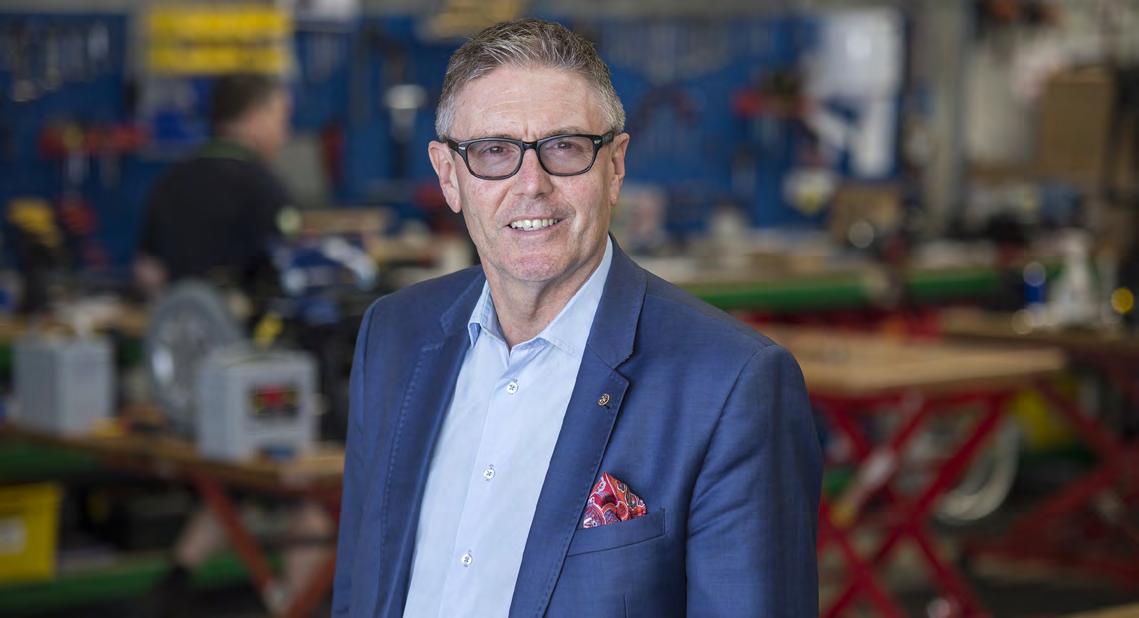
Brett O’Riley,CEO EMA
will determine our skills mix for immigrants, as well as our education system.
Training, education, skills, and immigration are a critical policy mix for New Zealand as we have a rapidly ageing workforce (in the top three ageing populations in the world), which coupled with our declining birth rate which is now well below what is required to replenish our working population, the time is now.
Along with the big picture is-
sues like this, there are a huge number of other policy and legislative changes facing businesses.
The minimum wage recently rose to $20 an hour, which is the third in a series of increases that have seen the minimum wage rise more than 25 per cent in the past three years. But is raising wages what drives the productivity which enables businesses to grow?
It is also only one piece of business-focused legislation or policy that is on the Government’s
agenda, and that is it in a nutshell really. It is the cumulative effect of this and the other policy and legislative changes from five extra days sick leave to Fair Pay Agreements.
As part of the BusinessNZ Network we are talking to Government about these issues regularly, providing your feedback and helping shape their response, businesses simply needs a bit of a breather.
At a practical level, we are here to support our members with expert


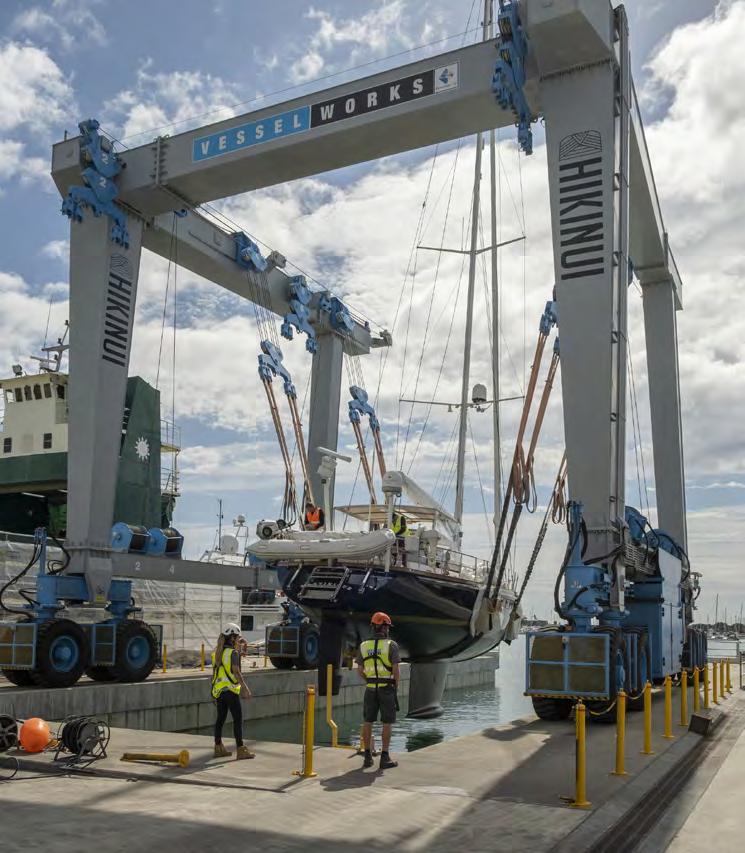
TBy DAVID PORTER
auranga’s Marine Precinct has seen more than its share of ups and downs since it was first conceived and then formally launched in mid-2018.
Even obtaining full clearances for successful tenderers to proceed with erecting their planned sheds has proven problematic since the inception of the ambitious project.
The Precinct has retained the Vessel Works title to run its hard stand, utilising its 350 tonne travel hoist Hikinui, which been active in bringing sundry of vessels of varying sizes up from the harbour for refit work by the half a dozen companies that have set up operations in the Marine Precinct.
Phil Wardale, who played a large part in conceiving the Marine Precinct, has since moved to Whakatane where he is playing a similar role in opening a marine precinct in the Eastern Bay.
New manager in charge
His role as director-marine precinct has been taken by Dave Withington who reports to Paul Davidson, GM corporate services. Davidson told Bay of Plenty Business News that, now the precinct was running reasonably smoothly, it was time for a reset of the operations.
“We’ve focused on the vessel works component at the start of that,” Davidson said. “Operations have been going for a while now and we want to reset.”
The Marine Precinct was the site of a major meeting of most of the stakeholders in late March, and according to Davison, things were proceeding well, though some at the meeting held different views.

We talk to the stakeholders and we understand what they want. But we need to get a more aligned strategy going forward.”
– Paul Davidson
“We talk to the stakeholders and we understand what they want,” he said. “But we need to get a more aligned strategy going forward.”
Davidson said they hoped to finish the other part of the reset for the Marine Precinct by the end of this calendar year.
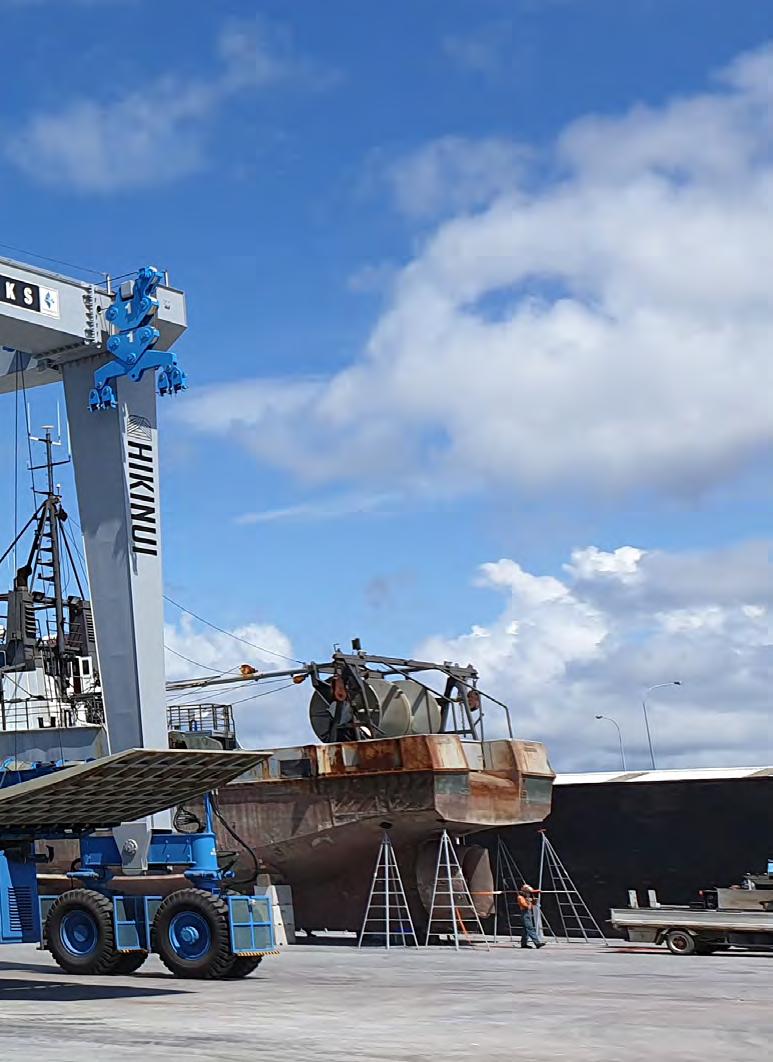

“We’re looking at what is exactly the most appropriate model,” he said. “Is it what we’ve got now? Or is it something different?”
Role for the commissioners
The newly appointed commissioners have visited the Marine Precinct, but had not yet engaged with what was required, he said.
“If there is any change that will be a decision that needs to go back to the commissioners,” he said.
Withington told Bay of Plenty Business News one of the major issues in resetting the strategy was that there was no agreed strategy for the use of the Tauranga Harbour and the Marine Precinct.
He acknowledged that similar operations throughout New Zealand were run in different ways and some questions remained to be settled as to whether the council should be running such a system.
“The Precinct is going pretty well and 95 percent of it is ticking over sweetly,” said Withington. “We’re well over targets for occupancy and utilisation of the facility and it’s definitely settled down. What we are doing is humming along, but we still have outstanding questions.”
Withington said that when he had joined, he became aware there was no strategy for how Tauranga uses the harbour, so there was no guidance on how the Marine Precinct and its facilities fitted into the use of the harbour.
“Everything’s been a bit piecemeal.”
Organisers were now focusing on two phases. The first was commercial and then there would be a move to a recreational focus, he said.
Withington observed that local fishermen continued to use the Precinct.
“In the next couple of months aiming to find out exactly what people want and identify high level objectives for this facility,” he said.
SYC specialises in fairing and painting large luxury vessels and has worked for numerous shipyards, boatbuilders and yacht-owners worldwide.
Pacific 7 is a marine contracting company that supplies marine services to local and central government including piling, surveying, salvage and mooring. It is also developing a range of electric workboats.
MMT is a locally owned and operated business, which is well-established in clears, covers and upholstery. They cover anything from curtains, carpets, umbrellas, indoors and outdoor covers, clips and more.
Pachoud Yachts is an innovative boat builder, specialising in the construction of luxury composite yachts, which has been operating in the BOP for more than three decades.
SMF offers contract manufacturing, metal fabrication and machining services, including all types of marine stainless steel, aluminium and other boat metal work across the full range of boat hardware.
RMD Marine is a fishing company operating from the West Coast to the East Coast of the North Island. The company owns and operates a range of fishing vessels. RMD Marine has a long association with Aotearoa Fisheries, the largest iwi-owned fisheries company.
Building Washing (Commercial/ Industrial/Office/Residential)
Roof Washing
Gutter Cleaning
Window Washing
Moss, Mould, Lichen, Grime, Oil and Stain removal
Bug and Pest Control management programmes
Fogging – Sanitizing
Hot water washes – Car parks, Pavements and Driveways
High Level – Atrium Dusting Call us today for a quote
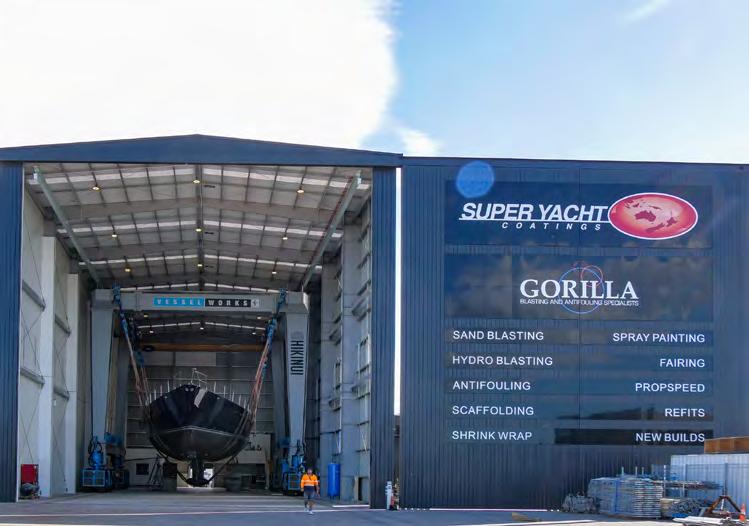
Roger on 0274 994 237 to see what we can do for you. Email roger@grimeoff.co.nz Web grimeoff.co.nz We can provide you with a customised programme, our services include:

Super Yacht Coatings has been a key contributor to the success of Vessel Works’ Marine Precinct
By DAVID PORTER




Super Yacht Coatings, created by ex Bay of Plenty boys Regan Woodward and Mark Hanna, has played a key role in building the success of Tauranga’s Marine Precinct.
The company, originally established in Auckland, had already built a worldwide reputation for its professional paint jobs when it became one of the original tenderers to the new Vessel Works operation in Tauranga.
It has also retained its operation in Auckland as well as diversifying into Tauranga.
Other companies based at the Marine Precinct have praised the company and noted that it has successfully drawn high level jobs and helped create work for other contractors at the site.
Woodward and Hanna
have a combined experience of almost 40 years in the business.
Ben Steele, general manager at Super Yacht Coatings, singled out the 36m yacht Miss Silver, which is currently undergoing a major six-month long refit at Super Yacht Coatings new facility.
Steele noted the yacht was originally built in New Zealand by Alloy Yachts in 1994, but had subsequently been owned overseas before being brought back for the major New Zealand refit.
“This is a major restoration for Miss Silver,” said Steele.
“We’re delighted to be able to work on a yacht of this calibre in Tauranga, especially with its New Zealand history.”
Steele noted that the work on Miss Silver was providing work for most companies within the Marine Precinct as
well as Super Yacht Coatings, which currently employs 40 staff, and has worked on a variety of major yachts on the Vessel Works hardstand since it began operations a couple of years ago.
Super Yacht Coatings is currently finalising its new facility and has worked on a number of significant New Zealand vessels since setting up operations in Tauranga. Steele said having Miss Silver occupy the shed for six months was a positive for the company and the wider Tauranga Marine industry.
He said that obviously Super Yacht Coatings had been a bit worried as was everyone else when Covid-19 struck.
But the company had experienced a decent 12 months, especially from September onwards, both in Auckland and Tauranga.
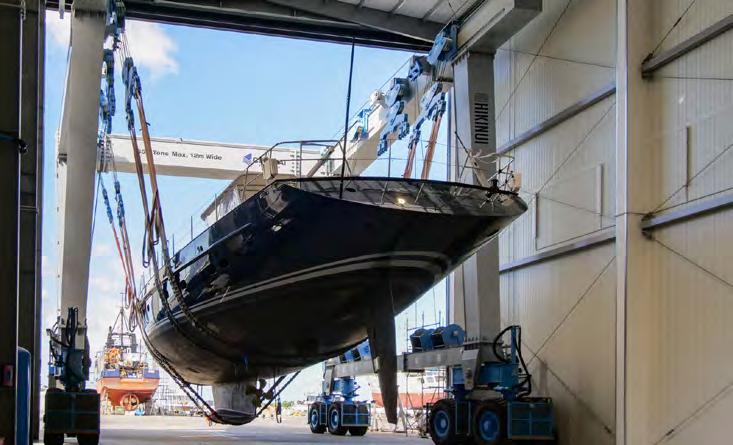
Jon Jon Peters knows he carries a lot of responsibility on his shoulders. As Bay of Plenty Regional Council’s Harbourmaster and Marine Manager, he is responsible for keeping the community safe while they use our local rivers, lakes and harbours.
While the number of on-water rule breaches is up this summer from last, Harbourmaster Jon Jon Peters says the maritime team are making a difference across the Bay and the majority of water users are complying with the rules that keep them safe and more importantly alive.
The father of three grew up in Central India – landlocked hundreds of kilometres from any open water. His father, the late Tony Peters is of Indian descent from Goa and his mother’s family is from England.
His father had many sea captains as friends and they would tell the small impressionable Jon Jon stories of the open seas and adventures they had thousands of kilometers away from home.
At the age of four, he sailed from Mombasa, Kenya to Bombay returning home from visiting family members working as expats on the East African shores – he was sold, it was the life for him.
“I fell in love with the sea – I drew tattoos of anchors, boats and waves up and down my arms day dreaming of the open waters,” he said.
After completing school and working at other jobs, he joined the Merchant Navy as a deck cadet. He travelled across oceans for 10 years on super tankers slowly moving his way up the ranks until he graduated as a sea captain. While on vacation, he met his wife Michelle – who was working for an airline in Hong Kong
“I was sailing and she was flying.”
The pair soon had their first son, and settled in Hong Kong for around 10 years and were land locked once again, but over the next 20 years, Jon Jon’s career crossed over different aspects of the shipping world.
From being the general man-
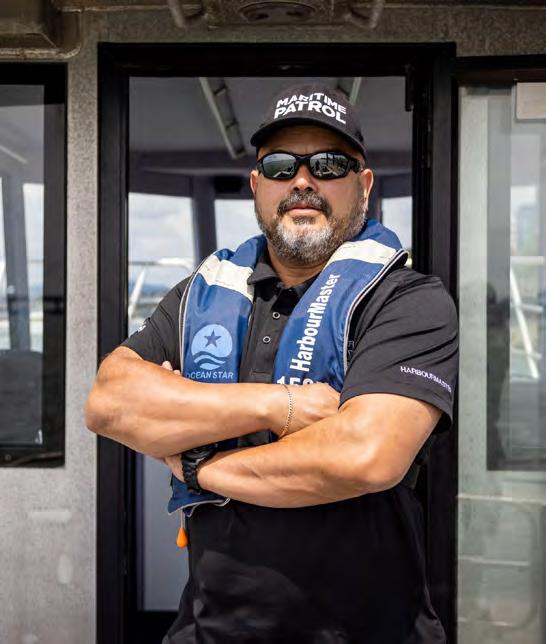
ager of a port, operations manager and cargo superintendent across West Africa to China to the Americas – he knows the industry inside out and has the stories to go with it.
In 2000, he was a mate on board a product tanker when a massive storm hit off the coast of Newfoundland.
It was -18 degrees outside and 9m high waves were smashing over the ship when Jon Jon was summoned to the captain’s quarters. The captain of the ship had passed away and Jon Jon was left in charge to sail the ship to shore through the storm, which lasted two days.
Although attracted to a life at sea, his fondest memories through his career have included places

close to shore including travelling up the Kiel Canal in Germany and transporting large ships up and over the Soo Locks in America.
Peters and his family first immigrated to New Zealand around 18 years ago, but then finally returned five years ago after working as an expatriate overseas – he was after a little slice of paradise and a place to call home after so many years traveling abroad.
He spent the last five years in Tauranga working for Maritime New Zealand, but secured his position as the new Bay of Plenty Regional Council Harbourmaster in late 2020.
Each summer the Maritime team patrol the Bay of Plenty waters ensuring that boats and other personal watercraft vessels
are following the rules.
Jon Jon knows he has a challenging role keeping the community safe, but that is what drew him to the job.
Jon Jon said flouting the rules is just not worth it.
“Most drownings occur because a person isn’t wearing a life jacket. It’s about safety - we are not here to hand out infringements, we are here to save lives,” he said.
“If you don’t follow the rules you are a danger to yourself and to the rest of the community – the rules are here to save lives – nothing more.
“That is my biggest challenge, getting this message across to the community. We are here to keep you safe and alive.”
If you have broken a rule on Bay of Plenty waters, you will receive a Breach Notice from the Harbourmaster, which includes a warning with a letter of explanation, but no further action will be taken.
If your offence is deemed unforgivable, you will receive an infringement notice, with details of your offence and a $200 fine to be paid.
However, before handing out an infringement, the Harbourmaster will look at a few things.
“The attitude of the offender, have they breached before, do they just not know better for example or are from out of the region. But if you are arrogant and just flouting the law… then you will be fined.”
“It is a challenging job at times and you have to be cautious of not making a wrong call – but the most important thing for me is keeping my eye on the ball which is the safety of the community.
“Some people won’t like that but if it’s good for the community then I am going to do it. I have to look at the bigger picture.”
The BOP has more in common with Silicon Valley than many of us realise. Sure we’re not the home of Google or Apple, but we punch above our weight.
In the June issue we will be running our first quarterly Tech in the Bay supplement. Every month we see new developments in the tech sector right here on our doorstep –incredibly these often go largely unnoticed by the general public; There are looks of astonishment when down the track those very same local innovators make headlines on the world stage.
We believe the tech sector will continue to become an increasingly important part of or local economy and we have an exciting job to do - we will be telling the stories of what our innovators are doing.
Look for Tech in the Bay in the June issue of BOP Business News. If you have a story you think we should know, contact us now: info@bopbusinessnews.co.nz
After five years as chief executive of Tourism Bay of Plenty, Kristin Dunne is moving on.
Under Dunne’s leadership, Tourism Bay of Plenty has delivered significant outcomes for Tauranga and the Coastal Bay of Plenty, including growth of more than 65 percent in visitor spend, worth just over $1 billion to the local economy, the organisation said in a recent statement.
An advocate for iwi and hapu engagement, Dunne inspired the co-created strategic plan, Te Ha Tapoi | The Love of Tourism, that she leaves as a legacy and Tourism Bay of Plenty chairperson Laurissa Cooney said she was leaving behind “significant shoes” to fill.
“Kristin’s leadership has been particularly inspiring as the region faced crises in Whakaari/White Island and Covid-19,” said Cooney. “The Board of Tourism Bay of Plenty wish to thank Kristin for her unstinting effort to create a visitor economy that regenerates our people and place. We appreciate Kristin has not made this decision lightly. While we are sorry to see her leave us, we respect her decision and thank her for all she has helped achieve for the destination.”
Current Tourism Bay of Plenty trustee Oscar Nathan will step down from the board to fulfil the acting leadership role until July 1, while searching for a permanent chief executive.
Nathan said the organisation was in great shape to keep delivering its strategic plan. “The team at Tourism Bay of Plenty are a talented bunch of people, fiercely dedicated to what they do, and extremely passionate about the region.”

> BY NATHAN BONNEY
Nathan Bonney is a director of Iridium Partners. He can be reached at nathan@iridium.net.nz or 0275-393-022
A recent conversation with a franchisor client prompted some discussion and reflection on the franchise model, in particular what does a franchisee get for their fees and are they good value? These are really good questions, and usually the first asked by any potential franchisee after, how much does it cost to purchase?
The answer to what are the fees, varies depending on the industry or sector, and the particular system. But we can look at the typical fees associated with a food and beverage franchise as these generally sit with-in a range. We can then look at where do they go, and what do you get for the fees?
This provides the franchisee access to and use of the intellectual property including systems and processes, branding and of course any proprietary products. Generally, these range from $30,000 to $50,000 depending on the system and what is called the initial term, or the period of the franchise agreement.
In my opinion, even at the higher end, this is extremely
reasonable and by no way captures the collective cost of developing the franchise system and know-how.
For most systems to get to that point they have invested heavily over a number of years, tested, refined and proven systems and processes and the initial franchise fee is a mere fraction of what it would cost an individual to actually duplicate.
A key part of buying into a franchise is learning the business and training a new franchisee is a franchisor’s core task. Sometimes a training fee or component is included in the initial franchise grant fee or sometimes separated out as a separate fee.
Good franchise systems invest very heavily in their
training programs from both a system and on a personnel basis.
Rarely could the training fee be considered a revenue generator for the franchisor. At best a training fee or allocation from the initial franchise fee is cost recovery.
Where a franchisee buys an existing franchise, they usually pay a training fee to the franchisor. But bear in mind this is not actually growing the number of franchisees or business units.
For most food and beverage systems, the ongoing franchise fees or royalties are based on a percentage of revenue or turnover.
This ranges from a very few systems as low at four percent through to seven percent, with
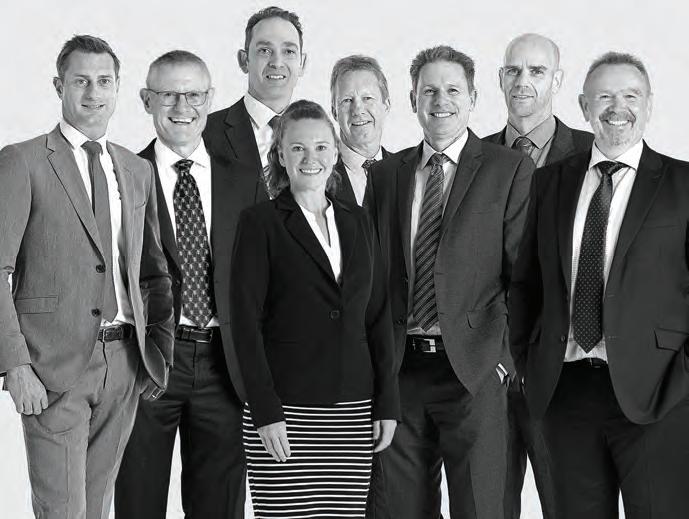

the majority in the middle. What do you get in return?
In absolute terms, this will depend on the system, but will include ongoing access to system developments, group purchasing, which in itself may offset the franchise fees, support and guidance and most importantly use of the brand, recognition of which may be a massive revenue driver.
This is sometimes referred to as Ad-fund. It’s important to remember that this is not revenue for the franchisor and they do not directly benefit from it. It is spent on behalf of the franchisees to increase revenue in their businesses.
The franchisor indirectly benefits from an associated increase in revenue through
any franchise fees.
Percentages range from two per cent through to perhaps six percent of revenue. Not bad when the old rule of thumb is that you should allocate at least five percent to marketing your business, and they the individual franchisee units benefit from the collective group spend, which is what makes it so powerful.
Technology, systems and special fees
Some systems have either one-off development fees, or special fees to cover the costs of specific technology or systems, are perhaps a specific development program.
Again, these are not usually revenue generators for franchisors and generally offset specific costs in the system for the franchise business units.
And again, in many or most cases the costs may be far lower than what an independent business operator would have to pay.
Are the fees good value?
In my opinion, as a general framework, yes absolutely these fees are good value and they will usually represent a percentage of the costs of an independent business unit to recreate what is provided. But ultimately answering the question of value will depend on the franchise system, how well-developed and supported it is, whether it has good systems that create quasi-value for the franchisees and associated cost savings. And whether or not it has a marketing programme that generates return via increasing brand awareness and sales.
The Acorn Foundation is pleased to announce the five recipients of the 2021 Page/Acorn Engineering Scholarship.
Members of the Acorn Scholarship Committee review applications put forward from local engineering firms, including references and progress reports provided by Competenz to select the best second year apprentice candidates each year.
The following recipients and their respective workplaces will receive funding to assist with expenses and equipment for the next two years from the Bob & Pat Page Fund:
• Torin Bryon, Te Puna – Boshier Engineering
• Omri Cook, Papamoa Beach – Gamminco Industrial
• Giovanni Dryfhout, Te Puke – Page Macrae Engineering
through retirement and are able to manage unforeseen changes in income can be a significant challenge. At Forsyth Barr we have a dedicated team who can help you to plan, build and manage an investment portfolio to suit your needs.
Whether you need to maintain a certain level of income, or grow funds to help future generations reach their financial goals without the burden of debt, we can provide the expert help. Contact us for a free review of your investments in confidence and a no-obligation discussion on how we can help you achieve your future financial goals.
Ronan Mitchell, Mt. Maunganui – Page Macrae Engineering
• Connor Watkins, Papamoa Beach –Contract Mechanical Services Ltd
“The Page/Acorn Engineering Scholarship programme has been running for 13 years. Nearly 60 well-deserving apprentices and their workplaces have received support due to the generosity of Bob and Pat Page.
“It is wonderful to have the Acorn Foundation manage such a worthwhile endeavour,’ said Lori Luke, general manager of the Acorn Foundation.
The Page Macrae Engineering team were thrilled with the awards, saying “On behalf of the Page Macrae team and the

Omri Cook,Papamoa Beach –Gamminco Industrial.
two successful applicants, we thank you and all those involved in the Acorn Foundation for this wonderful opportunity for the apprentices and their employers. So gratefully received and appreciated!
BBN’S GUIDE TO NEW PEOPLE AND NEW ROLES ACROSS BUSINESS IN THE BAY
To feature in New Appointments email us at new.appointments@bopbusinessnews.co.nz
Businesses across the Bay of Plenty continue to grow in 2021. This issue features two new appointments.

Please contact us if your organisation has any exciting personnel changes you would like to share.
The Rotorua Sustainable Charter (RSC) is pleased to welcome Desirae Kirby as their new Sustainability Advisor. Formed in 1998, the RSC is an incorporated society based at APR Consultants comprising many businesses committed to sustainable outcomes and to continually improving their environmental & social performance. Ms Kirby is a chemical engineer with a wealth of experience in the environmental research, resource management & sustainability spaces. Formerly with Oji Fibre Solutions, Ms Kirby is a past national president of Appita (the Aust & NZ Pulp & Paper Technical Association) and is currently national president of Zonta.
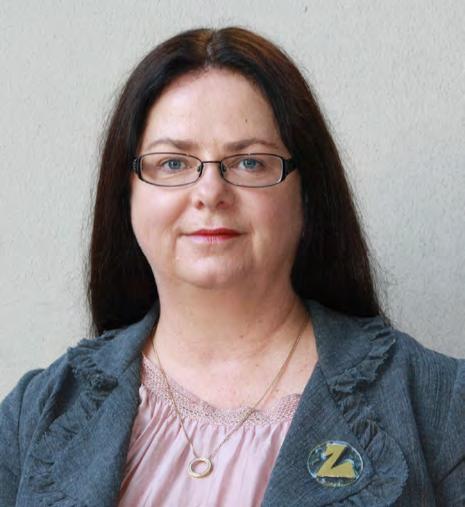
The Staffroom welcome Paula Power as their newest staff member to their team of Recruitment Consultants. Paula has spent many years working with a range of businesses developing key relationships over a range of industries including recruitment. She is passionate about helping candidates achieve their goals within their careers and clients, to find the right solution for their recruitment need. Paula enjoys spending time with her partner and their large family of 5 girls. When she can find time, she enjoys freestyle jet skiing, riding her Yamaha pole ski in the surf at some of her favourite spots in New Zealand.

Nearly half of Kiwi businesses said their relationships suffered due to less face-to-face interaction in 2020 –2degrees research.
After more than 12 months of effective border closure, Kiwis can now cross the ditch to visit family and friends, or to progress business interests.
2degrees has had a keen interest in how business owners were viewing the idea of overseas travel, and with the opening of the transTasman bubble on 19 April the telco has interesting insights to share.
The 2degrees’ Shaping Business Study, now in its second year, reveals the decision to re-open the borders will likely come as a relief to Kiwi business decision makers, a third of whom say they will only travel once there is no requirement to quarantine.
The telco’s first iteration of the Shaping Business Study back in 2020 looked at views overall, and for more than a quarter (28%) of business decision makers, the pandemic put travel firmly in the no
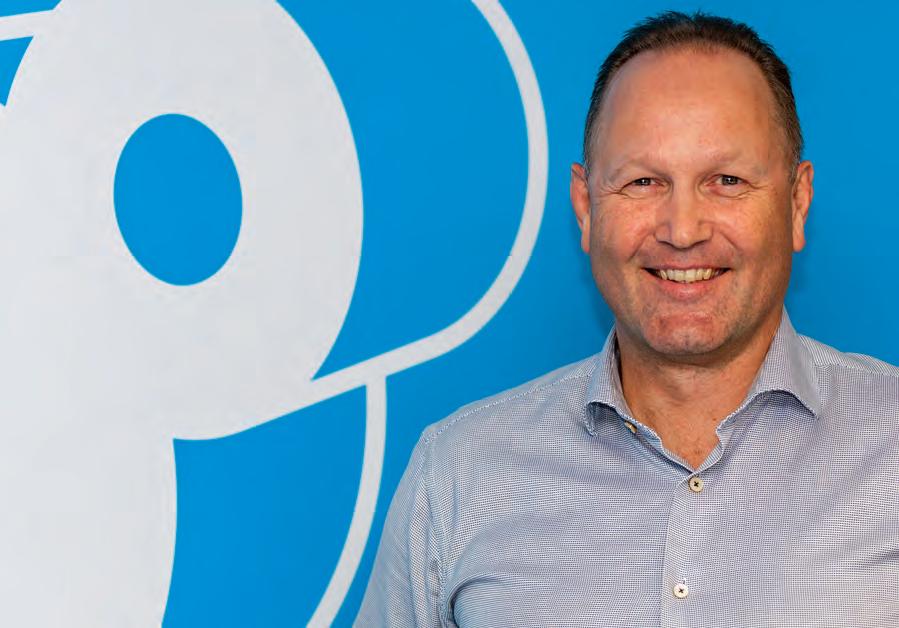
Andrew Fairgray,Chief Business Officer,2degrees.
go zone. Fast forward 12 months and this figure has dropped to just 12%, suggesting Kiwi businesses are ready to do business in-person. When asked about their appetite for trans-Tasman travel, 42%
of business decision makers said they intend to travel for business in Australia at least annually when the bubble opens.
This is in stark contrast to 2020, when a third said they would not be
doing any business in Australia at all. Andrew Fairgray, Chief Business Officer at 2degrees, says that while the company’s network has played a critical role in keeping
trans-Tasman businesses connected in the last year, the company wants to make it just as easy for people travelling for business to communicate.
“Prior to Covid, we looked at where our business customers were travelling to and found that more than half were crossing the ditch to Australia regularly. That’s why we committed to making roaming in Australia available at no cost for all 2degrees Business customers when the bubble opens.”
The decision means that 2degrees Business customers can now roam in Australia at no extra cost to use minutes, data and text.
“I’m proud to say that we lead the market with our business roaming offer,” says Andrew.
“Our research this year revealed that nearly half (48%) of employing business decision makers believe their business relationships suffered due to less face-to-face interaction in 2020 – an indication of how important doing business in-person really is.”

Friday 14 May to Sunday 16 May
Basestation, 148 Durham St, Tauranga
Priority One is getting right behind this event and looking for community-minded people who want to improve the well-being of our community and work together with a team of like-minded people to come to impactful solutions.
What is Startup Weekend? Startup Weekend is an entrepreneurial event organised by volunteers all over the world. For the last nine years, Startup Weekend Tauranga has brought together innovators, problem solvers, marketers, developers, designers and more. In just 54 hours participants meet, form a team, develop an idea, and showcase their startup concept to a panel of Judges.
Why should I attend? Pitch an idea, learn a new skill, talk to as many people as possible, and step out of your comfort zone. It’ll be the best thing you do that weekend! If you want to put yourself in the shoes of an entrepreneur, register now for the best weekend of your life.
More information and register at Priority One.

After nearly 15 years in credit management and almost six in the repossession industry I have noticed a few trends. One of these is that people will not learn from the consequences of their actions if they do not have to face them and taking away the ability of the debtor to deal with the matter as soon as possible does not help them in any way.
Time after time we pursue a debtor for either collection or repossession only to be blocked by a well-meaning parent or family member, who knowingly shields the debtor from speaking to us thinking that they are doing them a favour. This could not be further from the truth.
You see, generally the longer a debt is outstanding or the more work that is involved in locating the debtor, the higher the fees and the more serious the potential legal consequences.
Often expensive court action is required where a simple and inexpensive phone call or field visit could have resolved the matter.
Another well-meaning but ultimately damaging action taken by people, particularly parents, is repeatedly bailing debtors out of debts and then expressing surprise when more debts crop up.
“If you take away the pain you take away the lesson” is a saying that a good friend of mine says often and I feel it is very applicable here.
The only lesson that is learned
from not having to deal with the consequences of poor decisions is that poor decisions have no consequences.
I have seen parents literally bankrupt themselves bailing errant adult
The only lesson that is learned from not having to deal with the consequences of poor decisions is that poor decisions have no consequences.”
children out of a string of debts. Whether this be out of a sense of shame, guilt or obligation it does not help and this is made obvious by the behavior repeating itself and the pain shared not reduced.
> BY NICK KERR
Nick Kerr is a Business Advisor at NJK Advisory Ltd. He is also director of International Private Investigations Ltd. Nick can be reached at nick@nzipi.com

After seeing how hundreds of the above scenarios have panned out, here is my suggestion. Instead of helping a debtor avoid a debt or paying it for them there is a way that can achieve the goal of the debt going away or at the very least limit the extra costs and interaction with lovely agents such as myself and my collegues.
Encourange the debtor to run a free credit check through www. mycreditfile.co.nz or www.creditsimple.co.nz and take this to either a
budgeting advice service or contact each creditor directly and offer a payment plan.
You will both be surprised at how nice and accommodating creditors can be once a debtor makes contact offering a payment plan.
No matter how small the payments are, as long as it is reasonable, this way not only is the problem confronted head and the anxiety and stress reduced the lesson is not lost, which will make it less likely for the situation to reoccur.
Just a thought.

In pre-Covid days, if you created copyright works such as drawings or source code as part of your job, the odds are you would have done so during “normal office hours” at your desk rather than at 9 o’clock at night in the comfort of your own home. It would have been straightforward to establish who was the owner of copyright (TOOC) in those drawings or source code.

> BY BEN CAIN
Ben Cain is a Senior Associate at James & Wells and a Resolution Institute-accredited mediator. He can be contacted at 07 928 4470 (Tauranga), 07 957 5660 (Hamilton), and benc@jaws.co.nz.
n these Covid-affected times, however, many office-based employees now work flexible hours and work from home (WFH).
Indeed, the 8.30am – 5pm day in the office has almost become a rarity rather than the norm. As a result, ascertaining who is the owner of copyright in drawings or source code may be a little harder to discern; or at least, the topic may be open for greater debate.
The need to be sure of who owns what in an employment context is perhaps more important now than it used to be.
The recent case of Michael Penhallurick v MD5 Ltd [2021] EWHC 293 in the Intellectual Property Enterprise Court in England, although relating to events pre-Covid, illustrates this need.
Penhallurick, a former employee of MD5, claimed ownership of copyright in eight works relating to a technique he named “Virtual Forensic Computing” or “VFC”.*
The eight works comprised different versions of the software code (literary works), a graphic user interface (artistic work) and a user guide (literary work).
It was established that the first two works – the earliest version of the VFC source code and the object code compiled from this code – were created in 2005 and 2006, before Penhallurick was employed by MD5 in November 2006.
The Court found these
works were not relevant to Penhallurick’s claim and consequently focused its assessment on the remaining six works created by him after he joined MD5.
The Court found Penhallurick was the author of the six remaining works and therefore was the first owner of copyright in them – unless any were made in the course of his employment by MD5 pursuant to the IP clause in Penhallurick’s employment agreements, in which case MD5 was the first owner.
course of his employment with MD5.
Of particular interest to this author, and relevance to this article given the current fashion for working flexible hours from home, however, is the Court’s finding in relation to the third and fourth copyright works (“VFC Version 1” and the graphical user interface (“GUI”) for VFC Version 1) created by Penhallurick in 2007. In respect of these works, the Court said:
“[66] … It seems that Mr Penhallurick took on the task [of developing VFC Version 1 and GUI] with enthusiasm, to the extent that he took his
In these Covid-affected times, however, many office-based employees now work flexible hours and work from home (WFH).”
Which of these was the case turned on the meaning of “in the course of his employment”. Why? Because of the poor wording of the “Job Titles and Duties” and intellectual property clauses in Penhallurick’s first employment agreement.
The Court ultimately found that all of the works had been created by Penhallurick in the

of his employment. The fact that an employee does work at home is relevant to the question of whether the work is of a nature to fall within the scope of the duties for which he is paid but it may or may not carry much weight.
“Where it is otherwise clear that the work is of such a nature, in my view the place where the employee chooses to do the work will not generally make any difference. The same applies to the ownership of the tools the employee chooses to use, here sometimes Mr Penhallurick’s own computer system.
work home some of the time. His staff annual appraisal of August 2007 suggests that much of the work must have been done during working hours at MD5.
“But whatever the exact proportion done at home, it does not displace the strong and primary indication that it was work done in the course
“If it is clear that the employee is being paid to carry out a task as agreed with his employer, he may choose to use tools supplied by his employer or his own tools; either way, the task is carried out in the course of his employment.”
Although it is not stated, I am confident the same reasoning applies to the time of day the employee chooses to do the work – that is, it doesn’t matter whether you do the work
at 10am or 10pm, if the work is carried out in the course of your employment then any copyright rights in it will be owned by your employer.
Standing back, Penhallurick’s case identifies two important ‘‘take homes” for both employers and employees:
• First, if an employer is going to make use of copyright works created by an employee before that person is an employee, then the employer should have the employee assign copyright in those works to the employer at the same time the employee becomes an employee. Alternatively, execute a licence agreement with the employee at the same time the employee becomes an employee to enable those works to be lawfully used by the employer;
• Second, the employer should ensure employment agreements, but particu-
larly those with employees whose job it is to create intellectual property, adequately identify an employee’s role and scope of duties so that it is clear what resulting intellectual property the employer is laying claim to by virtue of the employment agreement, irrespective of what time of day and where that intellectual property is created.
* VFC is a method of retrieving an image of the hard disk without writing on it, then booting up the image on a virtual machine so that the image can be investigated. In developing the technique, Penhallurick had used a freely available product called VM Software to set up the replica of the target computer’s hardware and operating system. As computer programs generally have inbuilt safeguards to prevent them from being manipulated in this way, the method developed by Penhallurick involved a password bypass feature.
There’s no shortage of great ideas in New Zealand. But for an innovative bunch, we’re not the best at realising the full potential of our innovations, particularly when exporting them.
At James & Wells, we can identify your competitive edge, offer business strategies for specific markets and help you own and leverage your intellectual property to ensure no one steals the fruit of your labour.
Over the years, technology has revolutionised our world and daily lives, with the trend of the increasing significance of technology only set to continue. It is therefore of use to look back at how technology has evolved.
Understanding the driving factors behind innovation, and the evolution for how technology is consumed could provide insights and set the stage for what the future might hold.
In a matter of just over 70 years, computers have gone from requiring an entire warehouse to operate, to a device as small as seven inches and weighing less than a kilogram running largely from a Cloud.
This drastic growth in technical capabilities has led to an equally drastic change in how computer technology is consumed.
The original general-purpose computers largely acted as mathematical calculators. Today, relatively strong computational power can be found in everything from our smartphones to our watches and even our fridges.
There have been several historical events that acceler-
ated breakthroughs in technology, the most notable being World War II.
This period acted as a midwife to the birth of the modern electronic computer.
Unprecedented military demands for calculations and hefty wartime budgets spurred innovation.
Ultimately, technology played a greater role in the conduct of World War II than in any other war in history and had a critical role in its outcome.
Shortly after World War II, the first programmable digital computer, called ENIAC was built and designed specifically for computing artillery range tables for the military.
Plugboards were used to implement ENIAC’s programming, which could take weeks to implement, but once completed allowed for computational speeds achievable by electronic means only.
The space race between the Soviet Union and the US was inaugurated by the Soviet’s launch of the first artificial satellite, Sputnik on October 4, 1957, which marked the start of satellite GPS mapping and revolutionised global navigation, travel and communication.
Light speed communication was the greatest innovation to be born of the race. In 1969, the Advanced Research Projects Agency transmitted the first message over a global satellite network (ARPANET). This was the inception of the internet.
2020 was a year dominated by the need to contain a pandemic. Nations scrambled to contain the virus, resulting in the first worldwide lockdown.
Although the technology already existed, the pandemic gave rise to 88% of organisations globally requiring their
Is this the best time to sell your business? Obviously, that will always depend on individual circumstances.
But one thing is clear – it’s better for you to be in control of the process and not be forced to sell due to health, death or relationship breakdown.
We are seeing numerous positive indicators that business values are being maintained and in many cases are increasing. We have no doubt from our research and experience that that quality businesses are in demand at the moment.
Generally the majority of businesses we have been seeing have produced really good financial performances post-Covid 19 lockdown. Fears that Covid-19 has af-
fected their value downward appears to be unfounded in the majority of cases we have examined.
For example, the Tabak Tauranga office recently sold a large manufacturing business to an expat New Zealander who was involved in a corporate job overseas, but had decided to return home because of the Covid19 epidemic.
The negotiations between the broker, purchaser and vendor were all conducted on Zoom prior to the purchaser returning to New Zealand. The purchaser has now settled with his family into the community and is enjoying being out of the corporate world and working for himself.
A breakdown of our sales
shows that in 2019 only 10 per cent of purchasers were from out of the Bay of Plenty region with 90 per cent being existing residents. But by 2020, 60 per cent of the buyers came from outside the Bay of Plenty with 40 percent local residents, and with that trend continuing so far in 2021.
I have also noticed an increase in the number of companies from outside the region interested in acquisitions. One South Island company in particular is looking to expand into North Island towns and cities. Their model is to acquire an existing profitable business with staff, premises, systems and customer base in place, rather than trying to start up a new business for themselves.
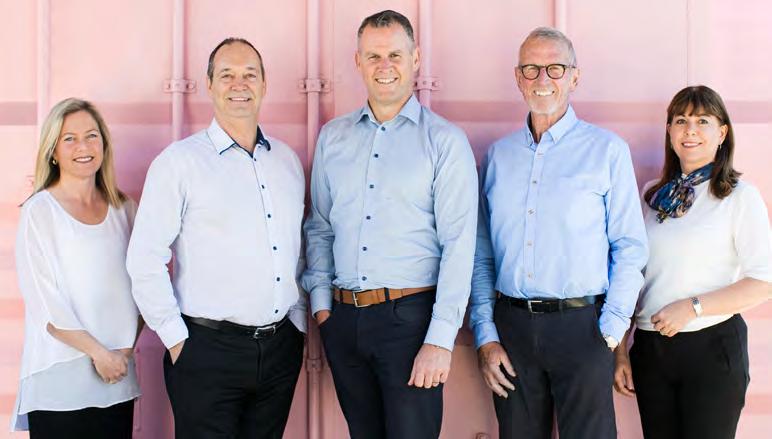

Sputniks launch on October 4,1957 revolutionised global navigation,travel and communication.

> BY TONY SNOW
Tony Snow is chief executive and co-founder of Stratus Blue. He can be contacted at Tony@stratusblue.co.nz.
employees to work from home.
Society had already believed we lived in a digital age, the pandemic solidified that without the advancements in technology, many would not have been able to continue business as usual.
An abrupt shift to a remote workforce brought hope to global economies, but it didn’t come without its downfalls. Cyber-crime rose to an all-
time high. Organisations, governments and individuals all became targets.
The rapid shift to work from home produced ideal conditions for cyber criminals. Many organisations didn’t have the time to implement robust cyber security solutions.
TechRebublic reported a 667 percent rise in phishing attacks in March 2020 alone, and a rise of 800 percent in
ransomware attacks causing an estimated global loss of approximately $1 trillion. These changes to the cyber security threat landscape have called for drastic advancements in threat detection and security measures, with the Cyber Security market forecasted to reach $170.4 billion by 2022 according to Gartner, as organisations improve their defences against cyber threats.

Basically, businesses are attractive as a result of the higher returns being provided. And business ownership continues to be exempt from Capital gains tax, while all interest costs continue to be 100 percent tax deductible.
As a result, business values are being supported by a number of factors. These include:
• A lack of quality businesses available on the
market.
• A significant number of purchasers coming from overseas, and moving to the Bay of Plenty for lifestyle, coupled with the workers recently made redundant who want greater control of their working lives.
• Historically low interest rates available for purchase.
• And rental housing and commercial investors

seeking higher returns from businesses.
The total number of businesses is down circa 40 percent across the New Zealand market and the demand for good quality businesses is high. We are also finding buyer demand for quality businesses is higher than in pre Covid-19 times. In our view, now is an ideal time to get a market appraisal for your business and to consider selling.
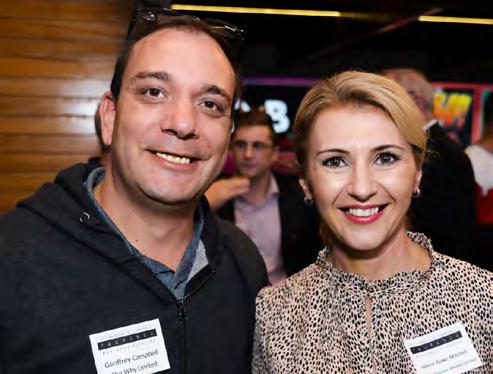
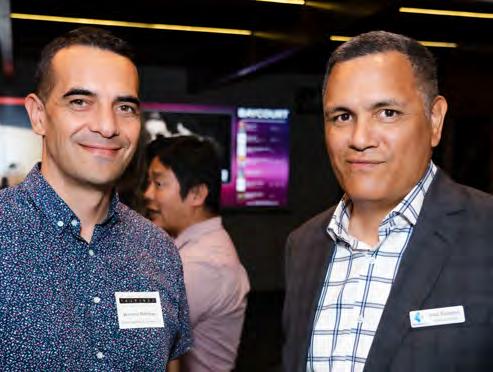





11 1 4 7 9 3 8 6 2 5 10
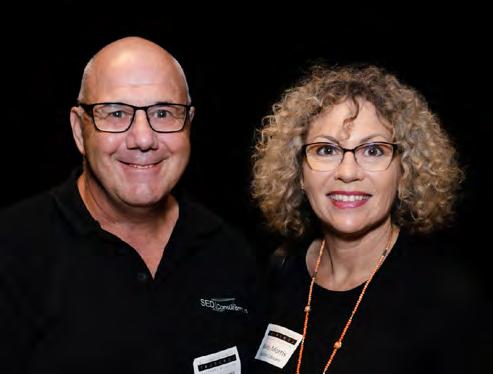
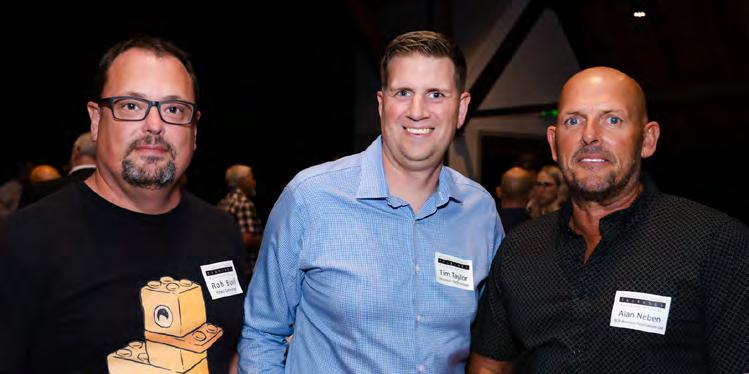

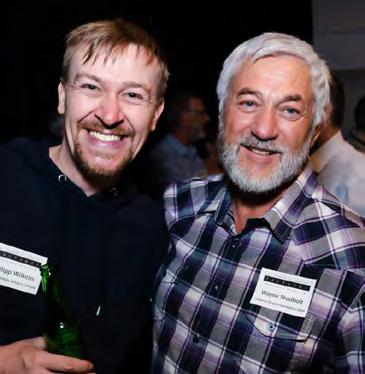
Video is a powerful marketing tool. There is no stopping the rise of video consumption, and when it comes to marketing, it is an effective tool to engage your audience.

> BY JAMES HEFFIELD
Director of Bay of Plenty marketing and PR consultancy Last Word. To find out more visit lastwordmedia.co.nz or email james@lastwordmedia.co.nz.
onsumers are busy and every day they are flooded with promotional messaging, so they need content that is easy to digest. That is where video comes in; it is engaging, entertaining and a quick way to get a message across.
According to HubSpot, 78 per cent of people watch online videos every week, and 55 per cent view them every day.
No matter the size of your business, video is a valuable supplement to your written content and an important asset in your digital marketing strategy. And it does not have to be expensive. Pause for a moment and make sure your strategy is making the most of the medium.
What are the benefits of video?
Video marketing uses videos to promote and market your
product or service, increase engagement on your social channels and educate your customers.
By integrating video into your content plan, you can remain competitive and use it as a tool for accomplishing your goals.
HubSpot Research found more than half of consumers are interested in watching videos from brands they support.
Many of today’s consumers want to be entertained with content that is fun, eye-catching and easy to consume.
Even small businesses with tight budgets can find a way to start making video content because it doesn’t cost nearly as much as it used to. The smartphones in our pockets can shoot high-quality videos. In fact, there is a demand for rawer and more authentic video. According to HubSpot Research’s study, consumers prefer lower quality videos that
are authentic over high-quality videos that feel artificial.
How do I make my videos count?
Adding video to your website is a good starting point. Google’s algorithms are increasingly prioritising websites with video content.
YouTube is the most widely used platform among video marketers. By uploading videos to a third-party platform like YouTube, then embedding them on your site, you avoid slow page load times caused by self-hosting.
When uploading your content, make the most of SEO to boost your site’s ranking on relevant searches. Use compelling and relevant titles and descriptions with keywords. And do not forget about the tags and filename.
Remember to leverage your social channels. Face-

book is another leading video platform, where more than 4 billion video views take place every day. Whether you upload video to your Facebook business page, use Facebook Live or Stories, or create a targeted video ad, make sure your story comes through on a small screen.
Add captions
Remember, most Facebook videos are watched with the sound off, so use captions where needed.
Video can also provide a boost to your email marketing. People’s inboxes are in overdrive and having the word video in your subject line can break through the noise and spark their interest. It is shown to boost click-through rates and lower unsubscribe rates.
But use videos wisely. Make sure they are relevant to your target audience and add value to your email. Most email providers do not support embedded video, so create an
enticing graphic to represent the video and link it to the page your video is on.
Creating a video for your brand certainly requires a bit of time and effort. But you can get started with photos and video clips you already have on your website and social media, or even use stock imagery.
Video is becoming an essential supplement to all-important text-based content. It’s time to set a marketing plan in motion that includes video.

FRIDAY 16 JULY
TRUSTPOWER ARENA



